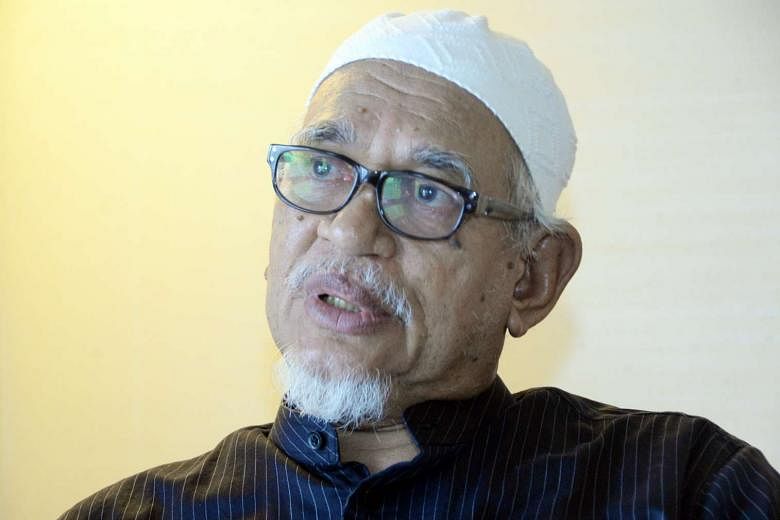Malaysia's Parliament began its final sitting for the year yesterday with the "hudud Bill" submitted by Parti Islam SeMalaysia (PAS) close to being put to a vote.
PAS president Abdul Hadi Awang's private member's Bill is aimed at expanding the powers of the country's syariah, or Islamic, courts, but the move has run into opposition from several quarters, particularly among non-Muslims.
There are fears that the Bill, if passed in the federal Parliament, would lead to the enforcement of hudud - or the Islamic penal code - which includes amputations and whipping as punishments.
Non-Muslim communities are concerned about the legislation's potentially overarching impact on other races, while politicians say it goes against the Constitution.
"We will make sure this Bill is not debated," Transport Minister Liow Tiong Lai said on Sunday.
Mr Liow, who heads the Malaysian Chinese Association (MCA), a party in the ruling Barisan Nasional (BN), said the coalition has reached a consensus on PAS' proposal, but did not elaborate on what it was.
Given the fierce backlash to its Bill, PAS has denied that the amendments are intended to introduce hudud in Kelantan state, which it controls.
In a bid to alleviate people's fears, the opposition Islamic party also sought to reassure non-Muslims that the law applies only to Muslims. But other opposition parties have insisted that PAS' vague explanation has failed to convince the people.
"We have asked for clarification on issues that can be misinterpreted or have different meanings," said Mr Khalid Abdul Samad, an MP from Parti Amanah Negara, a splinter party from PAS.
"But he (Datuk Seri Hadi Awang) hasn't answered our questions."
On its part, Amanah has submitted a counter-proposal which it said contains a more holistic approach and is acceptable to all.
PAS is seeking to expand the jurisdiction of syariah courts through amendments to Syariah Courts (Criminal Jurisdiction) Act 1965.
The proposed changes include allowing the courts to mete out punishments permissible under syariah law, except for the death penalty. If the amendments are passed, it could pave the way for state governments to introduce hudud.
For Malay-Muslim politicians on both sides of the divide, the topic has been a sensitive one.
The opposition Pakatan Harapan alliance - comprising Amanah, jailed leader Anwar Ibrahim's Parti Keadilan Rakyat and the Chinese- based Democratic Action Party (DAP) - has not stated its official stand. While the DAP is clearly opposed to the Bill, the issue of religion, even in a legal context, remains a thorny subject for its Malay-centric partners.
Similarly, Umno's three non-Muslim allies in the BN - MCA, the Chinese-led Gerakan and the Malaysian Indian Congress - have all opposed the Bill. Umno itself has been tight-lipped over what its official stance is. The party is having to juggle between upholding its image as a standard-bearer for "moderate" Islam and winning back Malay voters ahead of the next general election.
A recent poll shows that Malaysia is becoming increasingly Islamised. A Pew Research Centre report published in April showed that 52 per cent of Malaysians believe the country's laws should strictly follow the Quran. A Pew survey in 2013 showed that 86 per cent of Malaysian Muslims favour making Islamic law the country's official law.
Umno has 86 MPs and PAS has 14 - which is 12 short of a simple majority of 112 votes needed for the hudud Bill to be passed.

